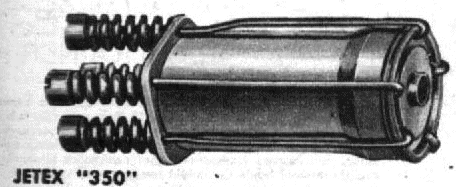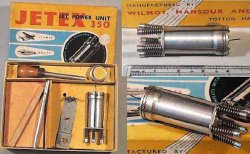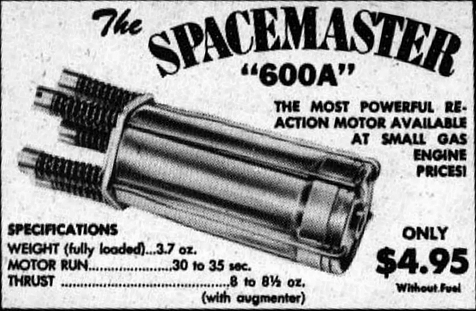|
General Description The oldest and
largest of the original motors, the Jetex 350 could hold one, two, or three pellets, giving
a duration of 12, 24, or 36 seconds. The Jetex 350 was
later redesignated the "Spacemaster 600A". Historical Notes This motor was
introduced by Wilmot & Mansour in late 1948. The identical engine is illustrated
in their U.S. Patent 2,637,162 (5 May 1953), which was in turn
based on their earlier British Application of 19 Jul 1948 (Serial Number
39,434). When American Telasco
Ltd., the sole U.S. distributor began importing them, the motor was redesignated the
"Spacemaster 600A". Remarks The engine comes with
a "springy" tempered aluminum mounting clip, very light in weight, that slips over two of
the forward spring heads, and around the nozzle. Originals also came with a "spring
compressor." This is a round aluminum rod (hollow at one end) that facilitates
compressing the springs when opening and closing the motor. Suitable Model
Aircraft
Performance Specifications Data posted in green
is from original factory packaging and instruction sheets
Additional
Illustrations
A handsome Jetex 350 kit by Wilmot,
Mansour.
An old advertising
illustration
|



